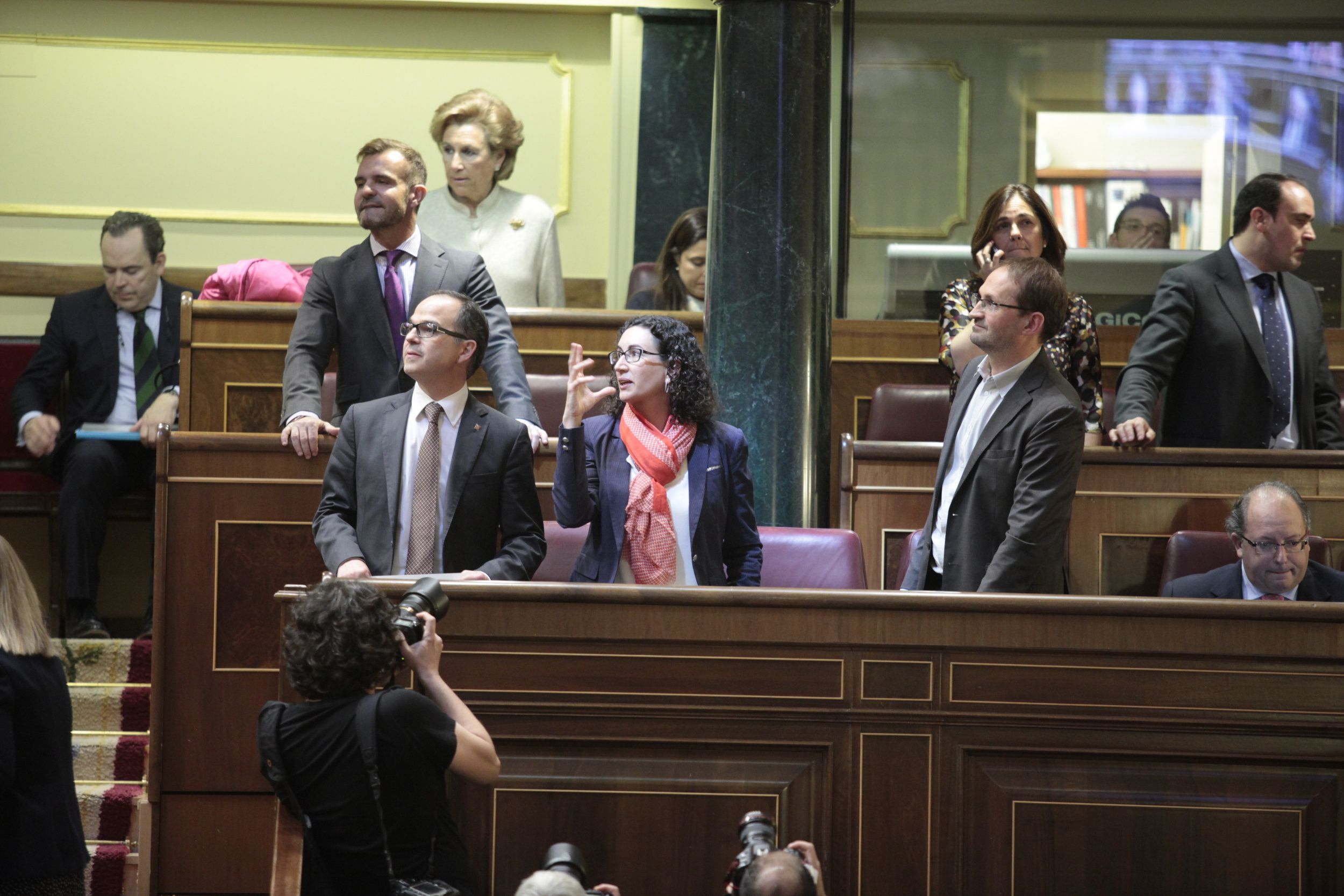On April 8th, 2014, three MPs from the Catalan chamber, Marta Rovira (ERC), Jordi Turull (CiU) and Joan Herrera (ICV-EUiA), made a journey to the Congress of Deputies in Madrid to present, on behalf of the Parliament of Catalonia, a bill to allow the holding in Catalonia of an agreed referendum on independence. Specifically, it requested the transfer of the power to call a binding consultation through article 150.2 of the Spanish Constitution. Seven years later, Pere Aragonès has dusted off that path, given Pedro Sánchez's refusal to self-determination.
The day after the meeting between the two leaders at the Moncloa palace, the head of the Spanish executive has publicly closed the door on a referendum unless the pro-independence forces can muster the support of three-fifths of the members of the Spanish Congress - the number necessary to reform the Constitution. And he added that his own Spanish Socialists Workers' Party (PSOE) will never give its support to allow this to happen. That is, an impossible path.
"There are other ways, I go back seven years," replied Aragonès, first from behind the microphone at Catalunya Ràdio and then on screen with La Sexta. Sources in the presidency believe that there is a path to be explored, as long as there is an "open mind" toward an agreed referendum. The Catalan president himself defines this option as "the easiest and most feasible route" - as opposed to a unilateral path.
Article 150.2 vs. Article 1 of the Constitution
In that distant April 2014, seven months before the vote that ended up as the unofficial Consulta on 9th November that year - and when parties such as Ciudadanos, Podemos and Vox were not even present in the Spanish parliament - Rovira, Turull and Herrera argued that the transfer of powers to organize a referendum was "legal, possible and necessary", and that all that was required was political will. A predisposition that their interlocutor, Mariano Rajoy, did not have. "The sovereignty of the Spanish people belongs to all Spaniards... Regional sovereignties do not exist, nor can they be created", was the response of the then-prime minister of Spain, quoting Article 1 of the Constitution. The Catalan proposal was rejected by 299 votes against (PP, PSOE, UPyD, Foro Asturias and UPN), 47 votes in favour (CiU, ERC, BNG, Izquierda Plural, PNB, Amaiur, Geroa Bai, Compromís and Nueva Canarias) and the abstention of the Coalición Canaria.
Mas, Rajoy and Article 92
Over the past decade, other alternative routes to drag the state towards an agreed referendum on independence have been explored. All have failed. In July 2013, Artur Mas put Article 92 on Mariano Rajoy's table, a section which provides that "political decisions of special significance may be subject to a referendum" to be convened "the king, by proposal of the prime minister previously authorized by the Congress of Deputies”. Puigdemont also tried it, with the same result: No, thank you.
Referendums and non-referendum consultations
A few years earlier, in 2010, the Montilla government in Catalonia had passed a law on popular consultations, which reserved for the state the exclusive competence to authorize referendums. When Mas came to the presidency he sought a new loophole, interpreting that text and adding to it the concept of "non-ratifying, consultative and non-binding popular consultations". That is, it was proposed to the Spanish government to allow a consultation without immediate implementation of the results. Not even like that.
The failed plebiscite of September 27th
Mas went on try it through the formula of plebiscite elections, on September 27th, 2015. The then-president sought to ratify the results of the 2014 Consulta through elections where voters would in effect vote on independence - yes, or no. It depended on each party having a clear position and the ambiguity of the alternative left (Catalunya Sí Que Es Pot) - who were not committed to independence, although they did support a referendum - made this path impossible. The ‘yes’ vote won, but it fell short of an absolute majority in votes, reaching 47.8%.
Additional provision to the Spanish law
With Quim Torra as president, the Catalan government's Institute for Self-Government Studies suggested a new alternative: the introduction of an additional provision in the Spanish law that regulates the modalities of referendums, a text from 1980. That proposal, however, remained in a drawer at the Palau de la Generalitat.
In the main image, Turull, Rovira and Herrera in Congress, in April 2014. / ACN

